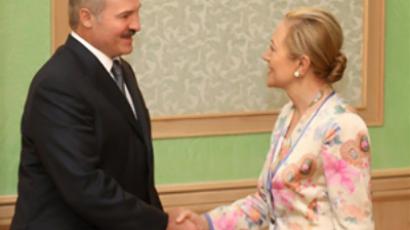Belgian Prime Minister elected first EU president
European leaders have decided to give the Belgian Prime Minister, Herman Van Rompuy the union's top job as the first permanent president.
Considered a low-key figure, he emerged as the favorite over prominent figures such as former British PM Tony Blair.
The new post was created by the Lisbon treaty, now ratified by all 27 members, which will come into effect on December 1.
The permanent president will be responsible for streamlining the EU's decision-making process.
The EU leaders have opted for the Prime Minister of Belgium, who is not very well-known on an international scale, though the original idea was to choose someone who would be the face of the EU, like, for instance, Tony Blair.
Popular opinion has it that the EU leaders have chosen someone who would not overshadow them. Another cynical opinion RT has learnt is that people chose Herman Van Rompuy because they do not know whom else to choose.
There has also been some controversy on the way the decision was made, because some, particularly from Eastern Europe, were unhappy with the way it was all carried out. The Polish ex-president and also Latvia’s ex-president have been saying there is too much backroom talk and that it was not all that transparent.
Most Europeans are actually confused about the two new positions, the President and the Foreign Minister of the EU. The question is how much power these new people will actually have. Under the new agreement, this new system of management is supposed to streamline the decision making and increase the EU global influence.
But the current foreign policy chief for the EU, Javier Solana, says the new structure will not jeopardize the sovereignty of member states:
"The European Union is not a super-state. It's a group of countries, which got together and decided to share part of their sovereignty – not all. And therefore you will not see in the foreseeable future a European army marching down a highway under the European flag. We are not going for that. We are going only for crisis management."
Solana shared his opinions on Russia-EU relations and much more with RT.
Read also – Herman Van Rompuy Elected EU President













